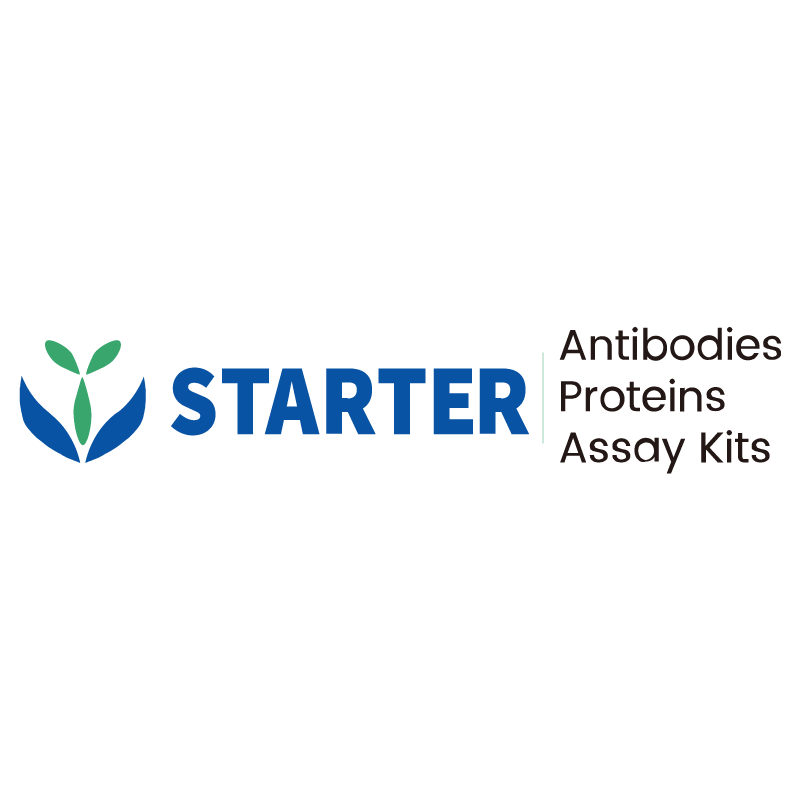WB result of ADAMTS5 Recombinant Rabbit mAb
Primary antibody: ADAMTS5 Recombinant Rabbit mAb at 1/1000 dilution
Lane 1: HeLa whole cell lysate 20 µg
Lane 2: U-87 MG whole cell lysate 20 µg
Lane 3: HepG2 whole cell lysate 20 µg
Lane 4: U-2 OS whole cell lysate 20 µg
Secondary antibody: Goat Anti-rabbit IgG, (H+L), HRP conjugated at 1/10000 dilution
Predicted MW: 102 kDa
Observed MW: 80 kDa
This blot was developed with high sensitivity substrate
Product Details
Product Details
Product Specification
| Host | Rabbit |
| Antigen | ADAMTS5 |
| Synonyms | A disintegrin and metalloproteinase with thrombospondin motifs 5; ADAM-TS 5; ADAM-TS5; ADAMTS-5; A disintegrin and metalloproteinase with thrombospondin motifs 11 (ADAM-TS 11; ADAMTS-11); ADMP-2; Aggrecanase-2; ADAMTS11; ADMP2 |
| Immunogen | Synthetic Peptide |
| Location | Secreted |
| Accession | Q9UNA0 |
| Clone Number | S-2315-138 |
| Antibody Type | Recombinant mAb |
| Isotype | IgG |
| Application | WB |
| Reactivity | Hu |
| Positive Sample | HeLa, U-87 MG, HepG2, U-2 OS |
| Purification | Protein A |
| Concentration | 2 mg/ml |
| Conjugation | Unconjugated |
| Physical Appearance | Liquid |
| Storage Buffer | PBS, 40% Glycerol, 0.05% BSA, 0.03% Proclin 300 |
| Stability & Storage | 12 months from date of receipt / reconstitution, -20 °C as supplied |
Dilution
| application | dilution | species |
| WB | 1:500-1:1000 | Hu |
Background
ADAMTS5 (A Disintegrin and Metalloproteinase with Thrombospondin Motifs 5), encoded on chromosome 21q21.3, is a zinc-dependent secreted metalloproteinase composed of an N-terminal propeptide, a metalloproteinase catalytic domain, a disintegrin-like module, a cysteine-rich region, a spacer and two C-terminal thrombospondin type-1 repeats; it functions as the principal aggrecanase that cleaves the cartilage proteoglycans aggrecan, versican, brevican and neurocan at Glu-Xaa motifs, thereby driving extracellular-matrix turnover during development, skeletal morphogenesis, adipose-tissue remodeling and T-lymphocyte trafficking, while its dysregulated activity contributes to osteoarthritis and inflammatory joint destruction, yet, intriguingly, the same protein—via its thrombospondin repeat 1—exerts anti-angiogenic and anti-tumorigenic effects independently of catalysis by suppressing VEGF, PlGF and PD-ECGF in the tumor milieu.
Picture
Picture
Western Blot


